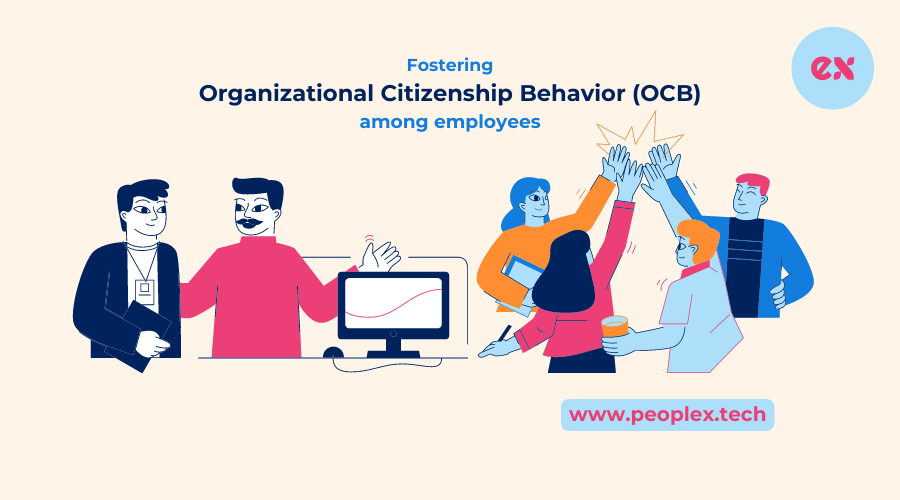
Promoting Organizational Citizenship Behavior (OCB) among employees
OCB refers to voluntary actions and behaviours exhibited by employees that go beyond their formal job requirements and contribute to the overall functioning and well-being of the organization. These behaviors can include helping colleagues, offering suggestions for improvement, participating in organizational initiatives, and displaying positive attitudes.
Employers must prioritize OCB because it has several benefits for both the employees and the organization:
- Enhanced Work Environment: OCB creates a positive work environment where employees support and help each other, fostering collaboration, teamwork, and a sense of camaraderie. This leads to improved job satisfaction, increased morale, and a stronger sense of belonging.
- Increased Productivity: When employees engage in OCB, they contribute to the organization’s overall productivity. By going the extra mile, employees contribute their time, effort, and expertise beyond their formal roles, leading to improved efficiency, effectiveness, and overall performance.
- Improved Organizational Culture: OCB helps shape and reinforce the organization’s culture by promoting values such as teamwork, cooperation, and mutual support. It creates a culture where individuals feel motivated to contribute positively, which, in turn, attracts and retains talented employees who align with the organization’s values.
To encourage and facilitate OCB efficiently, employers can consider the following strategies:
- Communicate Expectations: Clearly communicate to employees the importance of OCB and its alignment with the organization’s values and goals. Set expectations that employees should actively engage in behaviors that support their colleagues and the organization’s overall success.
- Lead by Example: Leaders should exhibit OCB themselves to serve as role models for employees. When employees witness leaders actively engaging in helpful behaviors, it sets a precedent and encourages others to follow suit.
- Recognize and Reward OCB: Implement recognition programs and reward systems that acknowledge and appreciate employees who consistently engage in OCB. Recognize and publicly appreciate their contributions to reinforce the desired behaviors.
- Foster a Supportive Environment: Create a work environment that encourages collaboration, teamwork, and a sense of community. Provide opportunities for employees to interact, share ideas, and contribute to decision-making processes. Encourage open communication and provide resources that support employee development and well-being.
The business case for prioritizing OCB is compelling.
By nurturing a culture of OCB, organizations can experience increased employee satisfaction and engagement, improved teamwork and collaboration, reduced conflicts, enhanced customer service, and overall higher organizational performance. OCB contributes to a positive work environment, employee retention, and attracting top talent, ultimately leading to long-term success and competitive advantage.
